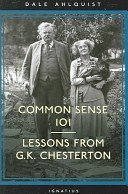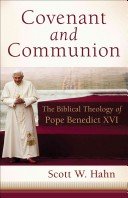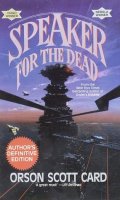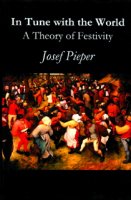I was a Brownie, then a Girl Scout as a child. Even then I was somewhat disenchanted, as I knew—thanks to my father's experience as a Scoutmaster for the Boy Scouts—how much more interesting the program, the experiences, and the skills learned would have been if only I'd had that Y chromosome.
Nonetheless, we had a good time, thanks to my father, who took us mountain climbing and taught us to build fires and tie knots, just as he had his Boy Scouts, and to a renegade leader who battled the Girl Scout bureaucrats for the right to take our troop on a tour of Europe. (More)
Permalink | Read 3051 times | Comments (9)
Category Random Musings: [first] [previous] [next] [newest]
 Common Sense 101: Lessons from G. K. Chesterton by Dale Ahlquist (Ignatius Press, San Francisco, 2006)
Common Sense 101: Lessons from G. K. Chesterton by Dale Ahlquist (Ignatius Press, San Francisco, 2006)
I tried to take a shortcut. With only three days before leaving the J&S Library behind, I chose this instead of a book by Chesterton himself. Although somewhat unsatisfactory, it was probably the right thing to do: The summary has left me thirsting for the Real Thing. (More)
One of the fun things about spending foreign money is that it doesn't feel like real spending. It feels like play money, Monopoly money. I don't know at what point I crossed the line, but I'm definitely past that. Swiss francs are now real money, and I look at the green American paper in my wallet and think, "What is this? Do people actually accept this as payment?" No doubt that will not last long, once I am home, but it's a weird feeling.
I've long been in favor of following the lead of the many countries that have replaced their lower-denomination bills with coins. Now that I've worked with such a system for over a month, here are some observations: (More)
 Covenant and Communion: The Biblical Theology of Pope Benedict XVI by Scott W. Hahn (Brazos Press, Grand Rapids, Michigan, 2009)
Covenant and Communion: The Biblical Theology of Pope Benedict XVI by Scott W. Hahn (Brazos Press, Grand Rapids, Michigan, 2009)
I read this book quickly, because it's a book to be read slowly. I should have guessed from the names on the dust jacket quotes—names like David L. Jeffrey, Hans Boersma, and Tremper Longman—that Covenant and Communion would be more like a book from a seminary library than the local Christian bookstore. There's a lot of heavy theology here, and I currently have neither the time nor the inclination to do it justice. However, that didn't stop the text from grabbing me occasionally and slowing me down enough to pull a few quotes. Quotation marks set off Pope Benedict's actual words. (More)
While Joseph was undergoing a secular baptism of sorts at the American Embassy in Bern, Grandma had no official business other than to receive the diaper bag when it was rejected at the door for possible terrorist connections.* (More)
Living with other people for several weeks is a good way to experience new foods and new food combinations. If those other people happen to live in another country, the opportunities multiply. And if they also subscribe to a local organic farm's weekly vegetable delivery, well...you get to try Swiss chard. Verdict? Not bad, though I think I'll like it better mixed with other things, such as in an omelet or on a pizza. It's related to beets, but I find the taste more like spinach. As it was with Heather and Jon's Community-Supported Agriculture farm in Pittsburgh, the weekly vegetable lottery is fun to play, and Stephan (like Jon) is particularly good at figuring out how to make good use of fennel, fresh tarragon, and eggplant as well as potatoes, lettuce, and zucchini.
What's a visit to Switzerland without trying a new variety of chocolate? When Stephan brought home a bar of dark Ovomaltine, I was at first skeptical. (More)
 Ender's Game, by Orson Scott Card (Tor, New York, 1991)
Ender's Game, by Orson Scott Card (Tor, New York, 1991)
Speaker for the Dead by Orson Scott Card (Tor, New York, 1991)
The short story version of Ender's Game was written back in 1977—more than 30 years ago—and even the novel is 25 years old. That was right when my reading interests veered sharply from science fiction to children and education, so I missed Orson Scott Card entirely until now. Extended visits for the birthing of grandchildren put me in contact with other people's libraries: it was at the birth of another grandchild that I discovered The Hitchhiker's Guide to the Galaxy and finally learned the significance of 42. (More)
We interrupt the writing of my review of Ender's Game to alert you to the fact that Janet has now posted Joseph's birth story. I'll add some comments later.
As I've said before, Isaac Asimov has long been one of my favorite authors, from science fiction (of course) to science fact to history to mystery. But his fantasy falls flat, at least if judged by Magic: The Final Fantasy Collection, which I finished reading today.
Asimov is fond of quoting Arthur C. Clarke's assertion that any sufficiently advanced technology is indistinguishable from magic; this may go far to explaining why I find his fantasy unsatisfactory. He is all-rational,* to the extent that even his demons and his dragons seem mundane. There is no magic in his magic. Some of the tales are good stories, but they lack the sparkle, the wonder, the life of a good fantasy.
Interestingly, Asimov had great respect for J.R.R. Tolkien as a writer and read The Lord of the Rings at least five times. Since I consider Tolkien to be a master at the elements that I find lacking in Asimov's fantasy stories, I wonder if those aspects of the LOTR, which in my opinion make it the monumental work that it is, were invisible to him.
Perhaps they were; certainly there is enough depth to the story to attract people on many different levels, as the makers of the movie version proved. Or...perhaps...he did catch a glimpse of the book's magic, which continued to draw him back, though he didn't know why.
The title isn't quite true, but it gets past the censors.
Joseph is the non-spitting-est baby I've ever met. I never think of using a burp cloth, and although when I packed for this trip I took into consideration that my clothes would be subject to much baby spit-up, it simply hasn't happened.
It was a good choice of shirts, however.
Joseph had awakened after a three-hour nap, and was not surprisingly in need of a change. Joseph finds a diaper change to be very inspirational.
Have you heard of the volcanoes that, instead of erupting straight up in the air, blow their lava out a side vent? Bright yellow lava, hitting Grandma straight in the face, and adding a contrasting golden spray to the dark blue Carnegie Mellon t-shirt.
No problem. We're signed up for laundry on Thursday.
Permalink | Read 2433 times | Comments (2)
Category Children & Family Issues: [first] [previous] [next] [newest]
I like the trash collection system here in Basel: You buy special blue garbage bags, each 35 liters in size (about 9 gallons), which is considerably smaller than an American "large kitchen trash bag." They are, however, much tougher, and can be well-stuffed without ripping. You pack your trash as efficiently as possible into as many bags as you need, and put them out in the street at the appropriate time for collection.
That's it. The cost of trash collection is included in the cost of the bags, and thus you pay proportionately for the amount of trash you produce. There is significant incentive to minimize your waste, yet the capacity to dispose of more is there if you need it. Ideally, you would pay by weight rather than volume, but the system is so easy, it is a worthwhile compromise. I think of a friend's complaint that she can't help feeling annoyed at seeing her neighbor's routine weekly pile of 10 or more large bags as she makes her own family's one-small-bag contribution to the landfill collection; she would welcome such a system in her town. As would I.
Recycling is different here, too, though I haven't decided if it's better or worse. Plastics and metals must be taken to a recycling station instead of being picked up at the curb as I'm accustomed to, but such stations are only an easy walk away. Only one type of plastic is recycled ("PET," known in the U.S. as PETE or #1); our county recycles any type of plastic as long as it has a number code. On the other hand, paper is picked up at the curb, and they recycle all sorts of paper, including office paper, which our county excludes. Not worse, not better, just different—and not any more different than the variability from community to community in the U.S., as we discovered in moving among New York, Pennsylvania, Massachusetts, and Florida.
 Stained Glass Elegies: Stories by Shusaku Endo translated by Van C. Gessel (Tuttle Publishing, Tokyo, 1986)
Stained Glass Elegies: Stories by Shusaku Endo translated by Van C. Gessel (Tuttle Publishing, Tokyo, 1986)
When Basel records the highest temperature in Switzerland, and much of Europe has the temperatures of Florida in July without benefit of Florida's air conditioning, and a recent birth precludes visiting the local swimming pool, let alone fleeing to somewhere high in the Alps, then sitting in front of a fan and reading beats most other activities. It especially beats sitting with a hot computer on one's lap, so this will be a short review.
Endo is not an author I would have likely come across on my own, but that's the advantage of having someone else's bookshelves at one's disposal. I chose this book of short stories over the many Endo novels available, on the theory that they would work better in a household punctuated by random baby needs.
Although the themes are decidedly adult, and rather depressing, the stories were good to read and rarely objectionable, even to me. What I found most fascinating was the glimpse of life from a Japanese point of view. Recurring motifs, probably somewhat autobiographical, include tuberculosis; hospitals; internal doubts, fears and struggles; war; and the suffering of Christians, both martyrs and apostates, during the time when Japan attempted to stamp out Christianity—and the effect that era has on Japanese Christians today. "Would I be able to endure torture and death—and the torture and death of my family—without abandoning my faith?" is not a thought most American Christians give serious consideration, but apparently for Endo, a Japanese Catholic in a land where Christians of all sorts make up only 2% of the population, it was a haunting question.
Temperatures in the mid-90's do not surprise me in July: I live in Florida. I'll confess I was hoping for something more reasonable in Switzerland, however. Somehow calling the temperatures "mid-30's" doesn't improve the situation as much as I would hope. I miss air conditioning; I miss ceiling fans. Even when we lived without air conditioning in Boston I could find relief at the grocery store. Not so, here.
But there are compensations. The apartment is wonderfully designed for cross-ventilation, and the lack of screens means we make the most of every breeze. We have two fans, and the temperatures cool off enough at night to make sleeping reasonable. Still, there's not much incentive to be very ambitious, and Janet is really wishing she could take advantage of her membership in the pool that's only a five-minute walk away.
How about you? I gather it's been hot for a lot of folks.
Baby update: Doing fine, eating lots, filling out, doesn't like the heat but still likes to be held. Has perfected the knack of filling a clean diaper within 15 seconds of the change.
 In Tune with the World: A Theory of Festivity by Josef Pieper, translated from the German by Richard and Clara Winston (St. Augustine's Press, South Bend, Indiana, 1999; original copyright 1963, translation copyright 1965)
In Tune with the World: A Theory of Festivity by Josef Pieper, translated from the German by Richard and Clara Winston (St. Augustine's Press, South Bend, Indiana, 1999; original copyright 1963, translation copyright 1965)
Sometimes it helps to take a second look.
I wasn't halfway through the first chapter before I was disappointed with In Tune with the World. It was my own fault: Despite the book's subtitle, I had been expecting practical suggestions for recovering festivity in a society where abundance is commonplace. (See New Year's Resolution #2: Rediscover Feasting.) However, when Pieper says "a theory of festivity," that is exactly what he means. (More)


